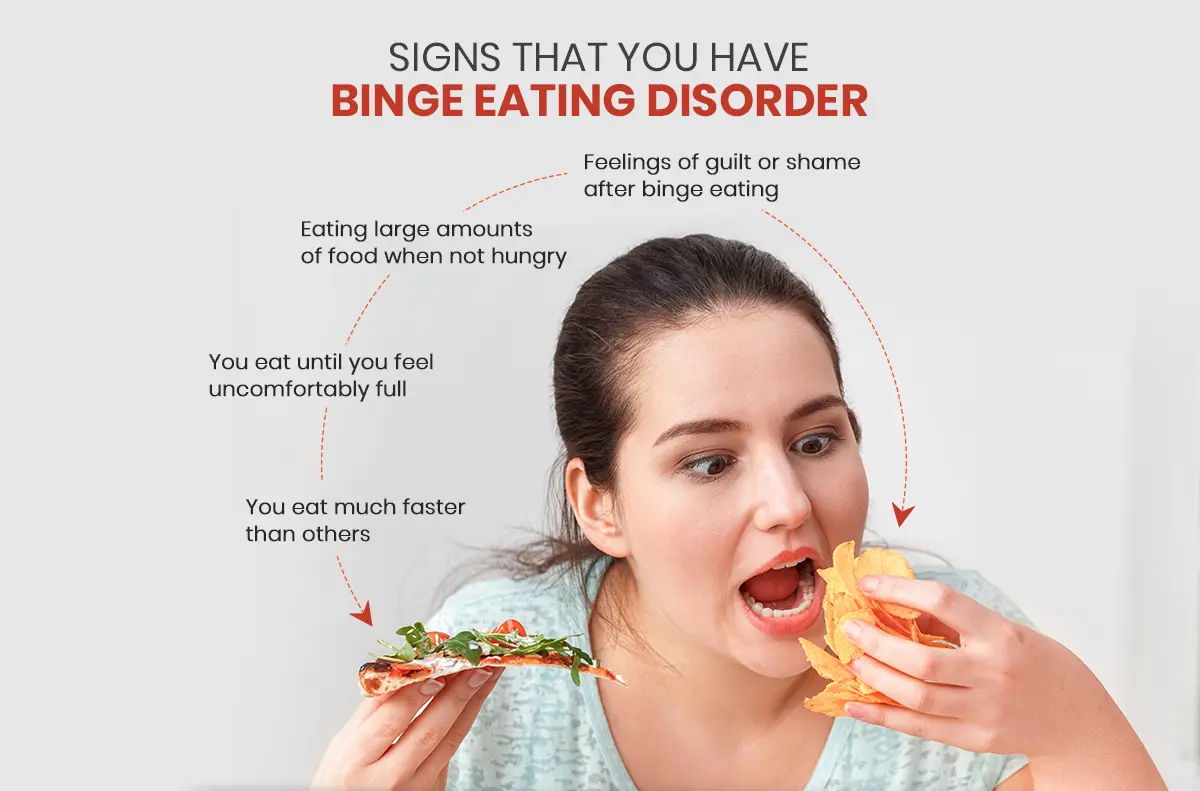Can Binge Eating Disorder be Cured?
No
Management aims to address psychological factors and establish healthier eating habits

What is Binge Eating Disorder?
Binge eating disorder is a mental health condition characterized by recurrent episodes of eating large amounts of food rapidly, often to the point of discomfort, and a lack of control during the episodes. It can lead to physical and emotional health issues. Treatment involves therapy, medication, and nutritional counseling.

Clinical Aspects

Characteristics
Recurrent episodes of consuming large quantities of food

Symptoms
Lack of control during binge episodes

Diagnosis
Structured clinical interviews, established diagnostic criteria

Prognosis
Varied, influenced by comorbidities and treatment response

Complications
Psychiatric comorbidities, heightened risk of obesity-related complications
Etiology and Treatment

Causes
Psychological factors, genetics

Treatments
Psychotherapy, medications (selective serotonin reuptake inhibitors)

Prevention
Psychotherapy, medications (selective serotonin reuptake inhibitors)
Public Health and Patient Perspectives

Epidemiology
Predominance in females, onset typically in late adolescence or early adulthood

Patient Perspectives
Acknowledgment of the disorder fosters engagement in therapeutic modalities
This information aims to provide a general understanding of the subject matter, but individual circumstances can vary significantly. Please remember to consult with healthcare professionals for personalized advice and guidance.
Share: